SPEAK LIKE AN IFRS EXPERT
This series of short clips will teach you the correct terminology as used by professionals. If you'd like to create good impression on your job interview or any presentation for your colleagues or bosses - this is just for you!
Click on the chosen image below and go. We regularly add new clips, so come back any time!

Part 1: "Recognize"
Use this word instead of "book something", "put it in the books" or similar phrases.

Part 2: "Derecognize"
Do not say "remove", "cancel" or "delete"! Instead, say "derecognize".

Part 3: "Disclosures"
Do not say "figures, numbers, records, data, information, or even description"!

Part 4: "Presentation"
What is the difference between "disclosures" and "presenation"? When to use these terms?
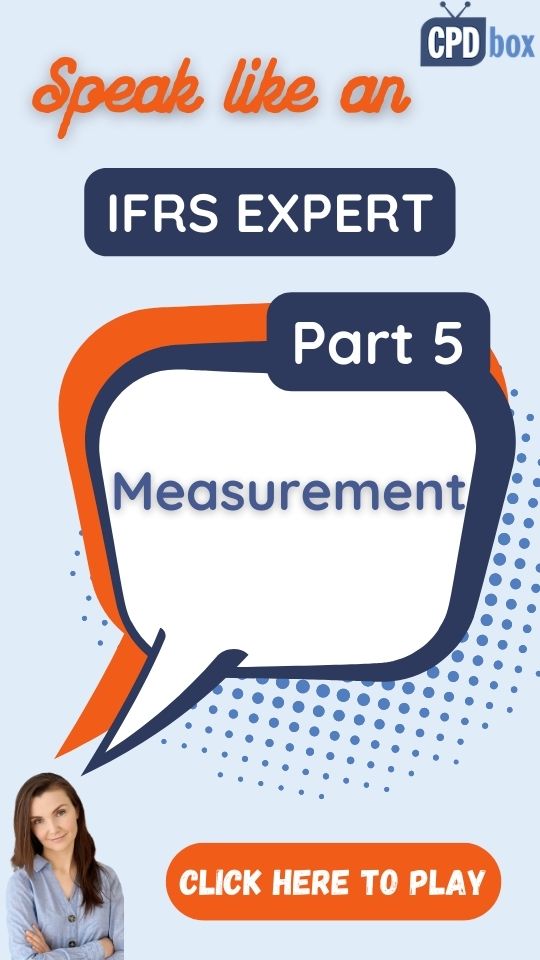
Part 5: "Measurement"
Use this word instead of "calculation", "valuation", "computation" or similar.

Part 6: "Carrying amount"
Do not say "book value", "total" or "valuation"! Instead, say "carrying amount".
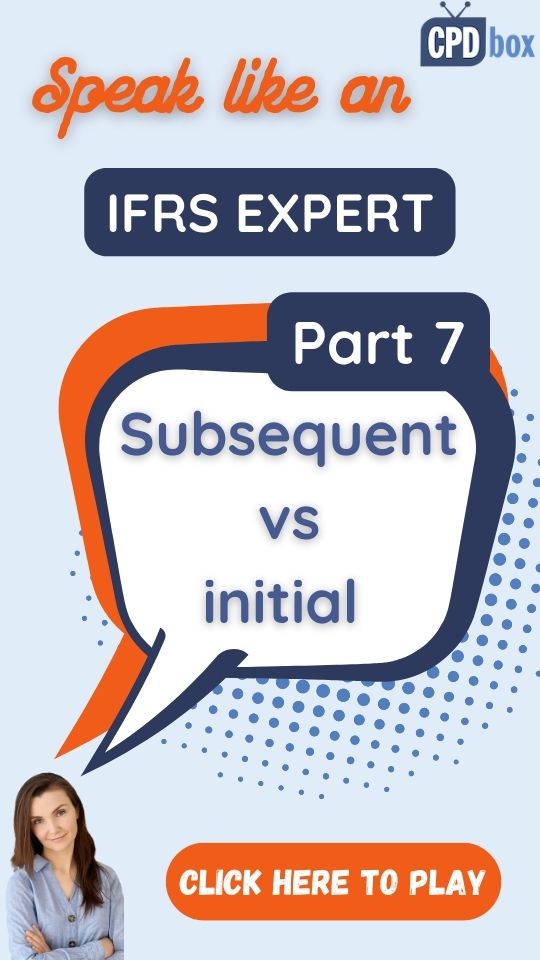
Part 7: "Subsequent vs initial"
Do not say "figures, numbers, records, data, information, or even description"!
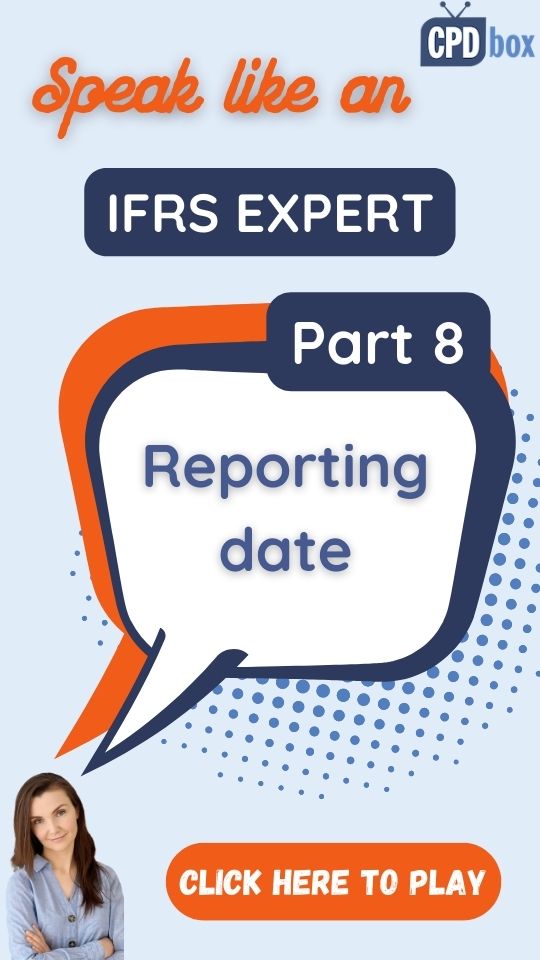
Part 8: "Reporting date"
What is the difference between "disclosures" and "presenation"? When to use these terms?

Part 9: "Revenue vs gain vs income"
What is the difference between revenue, gain and income? When to use these terms?

Part 10: "Offsetting"
Never say cancelling out, balancing, netting off, compensating or other terms!

Part 11: "Material information"
Do not say "significant, important, relevant, critical, key, core" - nothing like that!
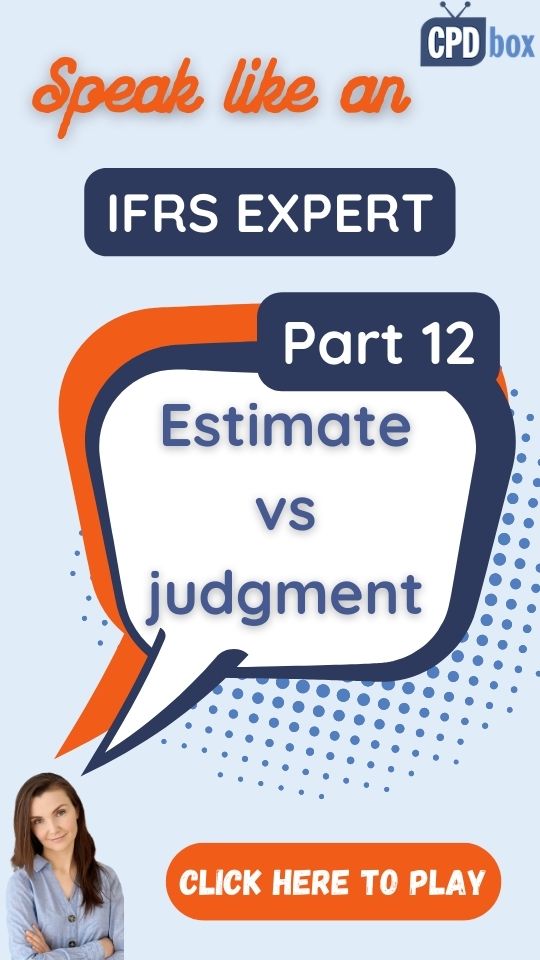
Part 12: "Accounting estimate vs judgment"
What is a difference between accounting estimate and judgment?
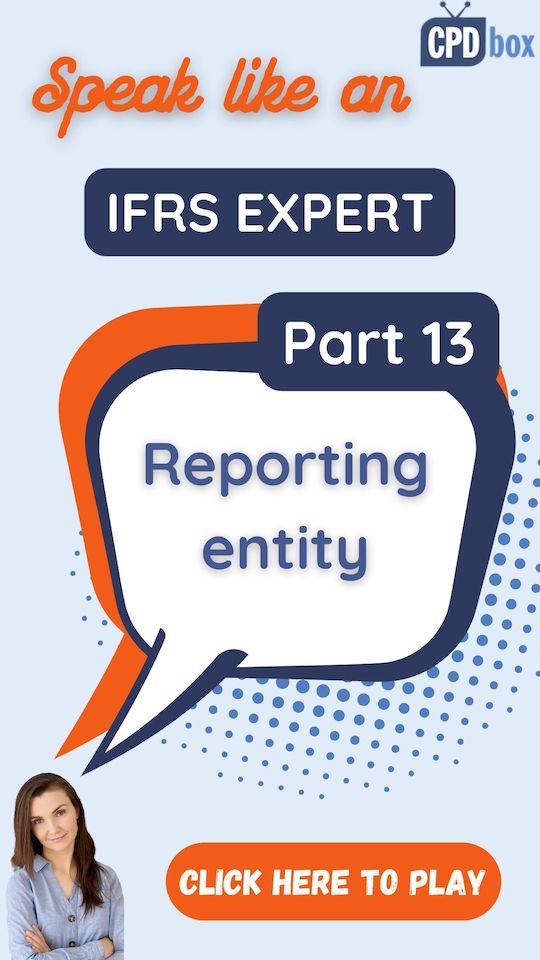
Part 13: "Reporting entity"
A company? Enterprise? Business? No - try using "reporting entity" instead.
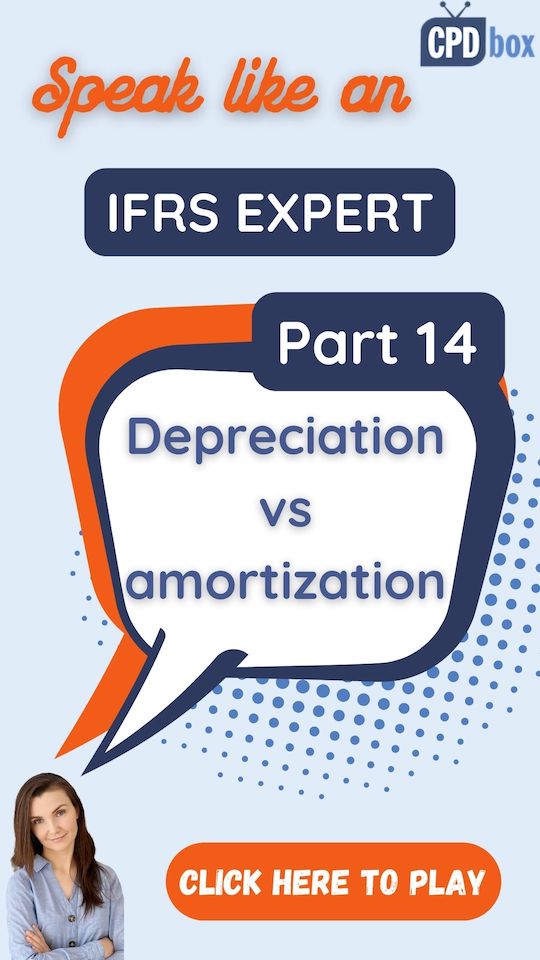
Part 14: "Depreciation vs amortization"
What is the difference between depreciation and amortization under IFRS?

Part 15: "Prospective vs retrospective"
What is the difference between prospective and retrospective under IFRS?

Part 16: "Parent and subsidiary"
Not a "mother company", or a "daughter company"... use these terms instead.
